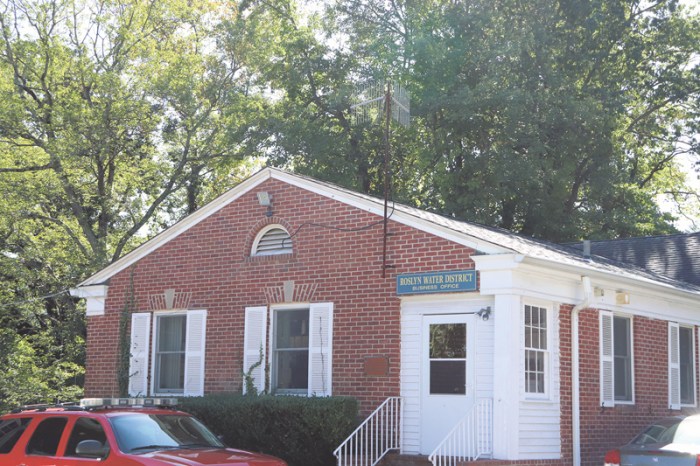In his most recent newsletter, Mayor John Durkin noted that Gov. Kathy Hochul’s proposed Housing Compact has been withdrawn from the state budget.
“This is very good news as I have laid out in last month’s newsletter,” Durkin said. “[The] implementation was so seriously flawed as to render it detrimental to the health and safety of our village.”
Durkin was hardly alone in his opposition. Long Island lawmakers from both parties also opposed the plan, which would have created up to 800,000 new units in New York State. In the past two years, the state has suffered a sharp loss in its population, losing more than 400,000 people, numbers that according to the United States Census Bureau, lead the nation in population and outmigration.
“This [the compact] is a proposed state law that looks to increase affordable housing by 3 percent a year on Long Island, and 1 percent upstate,” the mayor wrote in his March newsletter. “My bottom-line reaction is—good idea, poor execution.”
That “poor execution,” the mayor added, meant stripping local government of home rule.
“One of the benefits of living in an incorporated village is a very present, responsive government. Local officials are part of the community, we are your neighbor, readily available to take input and feedback. We are here to express the voice of the community. This law would take away that voice. It would be top-down order from Albany, a one size fits all decision-making process that does not take into consideration the unique character of Roslyn Village.
“At the center of the law is the idea of transit-oriented development (TOD). The Governor’s plan calls for dense housing (50 units per acre) within a half mile of the LIRR. If you took a compass and drew that half mile circle you would see that zone extending to Main Street and East Broadway,” Durkin claimed. “I cannot imagine four-building apartment buildings squeezed in between historic single-family homes, and that would be allowable if the law were to pass. The new law also envisions ancillary structures to be turned into housing, another ill-conceived idea.”
The mayor added that the law did not address such infrastructure concerns as sewers, fresh water, traffic, roads, and other environmental issues.
“We are a harbor town with an obligation to protect our great natural resources. Finally, there is a sense of place to be considered. Over the years we have worked really hard to preserve and protect the character of Roslyn. We are an historic village with many fine examples of American architecture. To intrude into this district with inappropriate buildings would be a grievous mistake. The law needs to be seriously rethought.”
Which has turned out to be the case.
The mayor also noted that the village is busy with its own affordable housing developments.
“With a little bit of foresight and geographic luck, Roslyn has approved a TOD in Warner Avenue,” Durkin said. “We are in the process of building a 52-unit apartment building across from the LIRR station. But this building is part of a multiyear project that included many public meetings, where we took expert testimony, resident input and witnessed many revisions. In the end we felt the project benefits outweighed the impact. We are particularly happy that there will be 20 percent set aside for workforce housing. The Governor’s plan only calls for 10 percent.”
In other news, the mayor lauded the unanimous passage of the 2023-2024 budget.
“We were able to construct a safe and solid budget with only a 1.36 percent increase, coming in well below the two percent state-imposed tax,” Durkin said. “I am also happy to report that the State Comptroller’s office gave Roslyn its best ‘stress ratings’ ever. We are listed as one of the least financially stressed villages on Long Island.”
This represents an improvement over last year. Roslyn received a higher stress rating. Now the village is back to where it wants to be.
There was more financial news.
“All of our capital projects are about to begin in the coming weeks,” the mayor maintained. “The downtown crosswalks, the northwest traffic islands, the Clock Tower, the Edwards Street parking lot, and the Grist Mill will all resume construction after a series of weather and chain supply issues slowed them down. Our downtown flower program will begin right after Mother’s Day.”
As with the rest of the Roslyn community, the mayor expressed his regret at the passing of Douglas Pierce of Pierce Country Day, a longtime Roslyn institution and reliable family business.
“The Pierce family has lost a brother, uncle and patriarch
and Roslyn has lost a leading light,” Durkin said. “Years
ago, when I first thought of entering local government, Doug was one of the people whose advice I sought. He was kind, generous and open with his time and opinion. When we established the Master Plan Committee, Doug was an active participant in the vision that would shape Roslyn in the years to come. I personally, and we as a village, will always remember him with respect and admiration. I have asked the village to prepare a memorial plaque in his honor.”
The mayor said that he would keep the public updated in this development.
Durkin: Roslyn Can Construct Its Own Real Estate

Roslyn Landing, an example of a local housing initiative
(Photo by Roslyn Landing)





























